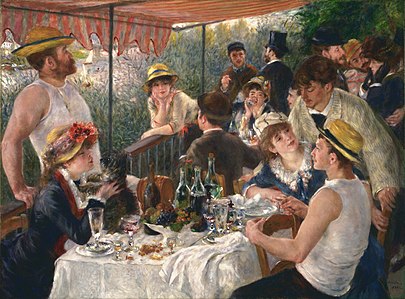
Courtesy of wikipedia.org
Last week I attended a play with two delightful residents from my retirement center. The performance was wonderful and when we returned home, after walking the distance of a single street, we were in good spirits and ready for a peaceful night’s rest.
In my youth, after a performance, I would have joined a gaggle of friends to indulge in a spaghetti supper washed down with glasses of red wine.
Together, my companions and I would have wrangled until the moon bent toward the horizon, our stomachs as bloated as our opinions and our hearts drunk with goodwill. Only when the proprietor insisted on shutting his doors would we have scattered like billiard balls to our separate abodes eager for a long Sunday sleep-in.
At 87, I entertained no such youthful ambitions. An early night and a warm bed were sufficient rewards for my nocturnal adventure, though making new friends at my advanced age was a joyful bonus. Physicians preach that human companionship is a factor in longevity. If true, that night, I added years with my day.
Socrates, a philosopher born in Athens in 470 BC, was among the first to note that man is a social animal. Modern science backs him up, though with a caveat. Affability isn’t an innate instinct but is acquired. The social world is something that we learn just like the visual, or auditory, or olfactory world. (“Mind,” by Rachel Nuwer, Wired, Sept. 2023, pg. 58.) In other words, like the aforementioned skills, we learn affability during critical periods in the brain’s development. (Ibid, p. 60).
Herd behavior, for example, emerges in the teen years. This Is a critical period when the young learn the rules of engagement and its boundaries from one another. Highly plastic during this time of rapid learning, the youthful brain is vulnerable to influences either good or bad. The period is similar to one children experience when they pick up languages at lightning speed.
All critical periods must end, of course. To be susceptible to unfettered influences indefinitely would leave us dysfunctional. (Ibid. Pg57) Nonetheless, what we learn in the socialization interval, as in all critical periods, affects the course of our lives, leaving us optimists or pessimists, for example, depending upon what we’ve experienced during rapid learning. (Ibid, pg. 61)
Scientists working with mice have discovered that drugs can affect critical periods because drugs influence genes that open learning highways. (ibid, pg.59.) Any psychedelic drug seems to have the same effect–which leads researchers to hope that one-day drug therapy will influence critical periods enough to enable damaged brains to repair themselves. Manipulations at the cellular level might allow the lame to walk, the blind to see, and the deaf to hear. Says one scholar, Everything you think and feel, everything you think makes you uniquely alive and aware of the world, boils down to molecules. (Ibid, pg. 56.)
As promising as this potential may be, it adds to my quandary about the human condition. Who are we? What are we? Why are we here? With the present so malleable, no wonder I look at the past with envy. History, at least, seems to be fixed.
I blame technology for much of my anxiety. Constant computer upgrades leave me feeling like a chameleon dumped on a square of plaid cloth. Confused! This morning, the tab for my newsfeed on social media dumped me in the video section instead. How to reach home remains a mystery.
I’ve long admitted I’m an analog gal in a digital world, but, in truth, that description falls short. Today, the divide lies not between analog and digital but between batches and loops. In the beginning, computing was a batch process. I refer to those punch cards people loaded into machines to collate masses of data, everything from the number of the nebula in the galaxy to the brand of cereal that sells the most.
Loops represent an endless highway of interconnections. We’re talking about the difference between a DVD and streaming. Once we step into loops, the old world of raw data collection fades and we face potentials that are mindboggling. I find it easier to accept that the earth beneath my feet spins around the sun at the rate of 67,000 miles per hour than I can accept a quantum world where a particle exists in several different places at the same time.
Sanity, it seems, requires me to accept insanity as its equal partner. Likewise, I’m urged to accept that truth, alternative truth, and true lies exist on the same plane. Frankly, at 87, I doubt my molecules are up to the task. More and more, drugs seem to be the answer. I understand the allure yet, so far, I’ve managed to resist. My friends are to be credited for this accomplishment. They’ve taught me that honest companions, either enduring or new, will always keep my feet fixed upon the ground without the aid of a stiff glass of burgundy
*Title from a book by Allison Larkin
